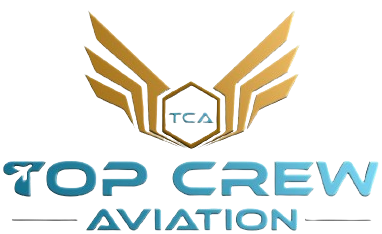
Becoming a pilot is one of the most prestigious and exciting career choices in the world. But before you fly high in the sky, you must first clear your DGCA (Directorate General of Civil Aviation) ground examinations in India. These are theory-based exams that cover key aviation subjects, including Air Navigation, Meteorology, Air Regulations, and others. To prepare for these exams, students enroll in DGCA Ground Classes.
Now comes the big question:
Should you choose Online DGCA Classes or go for traditional Offline DGCA Ground Classes?
In recent years, both modes of learning have become widely available, with top aviation academies offering flexible formats. Each mode has its advantages and limitations. This blog will give you a complete breakdown of Online vs Offline DGCA Classes, including detailed pros, cons, subject coverage, student suitability, and expert tips—so you can make the right choice for your aviation career.
What Are DGCA Ground Classes?
DGCA Ground Classes refer to the theoretical training that prepares aspiring commercial pilots to pass the exams conducted by DGCA. These exams are a mandatory requirement for getting a Commercial Pilot License (CPL) in India.
Subjects Covered in DGCA Theory Syllabus:
- Air Navigation – Understanding flight planning, charts, instruments, and more.
- Aviation Meteorology – Weather science, cloud types, winds, and climate.
- Air Regulations – ICAO rules, licensing requirements, and operating procedures.
- Technical General (Tech Gen) – Covers aircraft systems, engines, aerodynamics.
- Technical Specific (Tech Spec) – Specific systems of the aircraft you plan to fly.
- Radio Telephony Restricted (RTR-Aero) – Voice communication with ATC (exam conducted by WPC, not DGCA).
These subjects require dedicated classroom training, expert guidance, mock tests, and regular revision. Institutes now offer these classes in both online and offline modes, catering to students across India.
Why Choosing the Right Mode Matters
The choice between online and offline learning can directly affect your:
- Exam preparation quality
- Consistency and motivation
- Access to expert instructors
- Learning speed and understanding
- Confidence during DGCA exams
Therefore, it’s essential to carefully weigh the options based on your personal lifestyle, learning habits, and goals.
Detailed Comparison Table – Online vs Offline DGCA Classe
| Feature | Online DGCA Classes | Offline DGCA Classes |
| Accessibility | Can study from anywhere with internet | Must relocate or commute |
| Cost | Affordable – no travel, hostel, or food | Cost Higher – includes living, travel, and campus fees |
| Study Flexibility | High – learn at your own pace | Fixed schedule and classroom hours |
| Student Interaction | High – learn at your own pace | Fixed schedule and classroom |
| Teaching Style | Limited unless live sessions | peers, instructors, group study |
| Doubt Solving | Via chat, video calls, or mail | In-person, real-time instruction |
| Discipline Level Required | Very high – self-managed | during class or after |
| Technical Requirements | Laptop + internet | Moderate – routine enforces |
| Learning Resources | Digital notes, video lectures | Not required |
| Mock Test Practice | Online test series | In-person paper-based tests and discussions |
Advantages of Online DGCA Classes
Online ground classes for DGCA preparation have grown rapidly post-2020. Many reputed flight training academies now offer live and recorded lectures, mobile-accessible notes, interactive quizzes, and personalized mentoring—all online.
Key Benefits:
1. Study from Any City or Town in India: No need to shift to Delhi, Mumbai, or Jaipur. Even students from Tier 2 and Tier 3 cities can access high-quality classes without needing to relocate.
2. Flexible Schedule for Working Students:You can take classes on weekends, evenings, or watch recorded sessions later—ideal for students pursuing college degrees while also pursuing aviation.
3. Affordable Tuition: No relocation costs, hostel fees, food expenses, or city transportation. This makes online learning budget-friendly for most middle-class families.
4. Recorded Lectures and Lifetime Access: Missed a lecture? Watch it again anytime—perfect for revision before exams and clearing up any doubts.
5. Access to Top Instructors: Some of the best aviation mentors from metro cities now teach online, allowing access to quality education regardless of your location.
Drawbacks of Online DGCA Classes
While online classes are convenient, they come with challenges:
- Requires self-discipline – You must follow your study schedule without external pressure.
- Limited peer interaction – You miss out on the classroom environment and group discussions.
- Tech dependency – A poor internet connection or software glitch can disrupt learning.
- Less focus – Studying at home can be distracting if your environment isn’t quiet or well-organised.
Advantages of Offline DGCA Ground Classes
Offline classes are the traditional format where students attend physical lectures at an aviation institute. Despite the rise of online education, offline learning remains the preferred choice for many pilot aspirants.
Key Benefits:
1. Discipline Through Routine: Scheduled classes and fixed timings keep students punctual and focused. This structured routine helps students remain consistent with studies.
2. Direct Interaction with Teachers: Real-time questions, live explanations, Blackboard teaching, and face-to-face discussions help foster a better understanding.
3. Classroom Learning Environment: Sitting with fellow aspirants encourages healthy competition and interactive learning. Many students feel more motivated in a physical class setup.
4. Access to Study Resources: Physical libraries, printed books, model question papers, whiteboard illustrations, and real-time tests offer a more comprehensive learning experience.
5. Better Preparation for RTR and Oral Exams: Offline institutes often conduct mock RTR interviews, roleplays, and one-on-one sessions to improve communication and exam confidence.
Drawbacks of Offline DGCA Classes
- Higher costs – Tuition, travel, living, and food expenses can add up.
- Location limitations – If you don’t live near an institute, you must relocate.
- No recording – If you miss a lecture, you can’t replay it later.
- Time-consuming – Travel and classroom hours can be tiring or clash with college schedules.
Subjects Covered in Both Modes of DGCA Classes
Whether you choose online or offline learning, the syllabus remains the same. Here’s a breakdown:
| Subject | Topics Covered |
| Air Navigation | Coordinates, flight planning, instruments, charts, magnetic variation |
| Aviation Meteorology | Wind patterns, clouds, thunderstorms, air masses, visibility |
| Air Regulations | ICAO rules, Indian aircraft rules, flight crew licensing |
| Technical General | Aircraft systems, powerplant, hydraulics, pneumatics, electrical |
| Technical Specific | Performance and limitations of the aircraft you’ll fly (like Cessna 172, DA42) |
| RTR-Aero (WPC) | Phraseology, RT procedures, emergency calls, aviation communication |
A well-designed DGCA ground school (online or offline) should include:
- Interactive teaching
- Subject-wise mock tests
- Topic-wise notes
- Live doubt-clearing sessions
- Student performance analysis
Who Should Choose Online DGCA Classes?
Online classes are ideal for:
- Students in remote towns without access to pilot schools
- Working professionals preparing part-time
- Students who prefer studying at their own pace
- Candidates who can manage their schedule without supervision
- Aspirants looking for budget-friendly learning options
Who Should Choose Offline DGCA Classes?
Offline classes suit:
- Students who need personal guidance and a study routine
- Aspirants preparing full-time for DGCA exams
- Candidates who enjoy group learning and classroom interactions
- Those living in cities with reputed ground schools like Jaipur, Delhi, Mumbai
- Students needing in-person help for subjects like Navigation or RTR.
Hybrid DGCA Classes – The Best of Both Worlds?
Some advanced aviation institutes now offer hybrid learning, combining the benefits of both formats:
- Attend offline classes during weekdays
- Watch recordings online for revision.
- Participate in weekend doubt-clearing webinars.
- Download notes and solve mock papers digitally.
This hybrid format is especially popular among serious aspirants who want flexibility without compromising on mentorship and guidance.
Tips to Succeed – No Matter Which Mode You Choose
To clear DGCA exams on your first attempt, follow these proven tips:
- Create a study timetable – and stick to it.
- Revise frequently – don’t just rely on attending lectures.
- Attempt full-length mock tests regularly.
- Join a study group (online or offline) to stay motivated.
- Clear doubts quickly – don’t let minor confusions grow.
- Use previous year DGCA papers for pattern analysis.
- Track your syllabus coverage weekly to avoid last-minute panic.
- Stay mentally and physically healthy – rest, exercise, and eat well.
Final Verdict – Online or Offline DGCA Classes?
Both online and offline DGCA classes have their strengths. The best option depends on:
- Your location
- Your budget
- Your learning style
- Your available time
- Your need for guidance or flexibility
Choose This If You Want…
- Online DGCA Classes: Flexibility, affordability, access from anywhere
- Offline DGCA Classes: Structure, discipline, in-person mentorship
If you’re confused, consider enrolling in a free trial class (many institutes offer this online) and see what fits you better.
Conclusion
Choosing between online and offline DGCA ground classes is a crucial decision for every aspiring pilot in India. Both formats offer distinct advantages—online classes provide flexibility, affordability, and accessibility from any location, making them ideal for self-motivated learners or those without access to major cities. On the other hand, offline classes offer structured learning, personal mentorship, and real-time interaction, which help students stay disciplined and focused.
However, the success of your DGCA exam preparation ultimately depends not just on the mode of learning but on your dedication, regular revision, and strategic practice. Whether you prefer studying at your own pace or thrive in a classroom environment, the goal remains the same: to confidently clear all DGCA subjects.
Choose the mode that aligns with your lifestyle, learning style, and long-term goals. Start early, study smart, and remain consistent. Your dream of becoming a commercial pilot is just one right decision away.
Frequently Asked Questions
No FAQs found.



